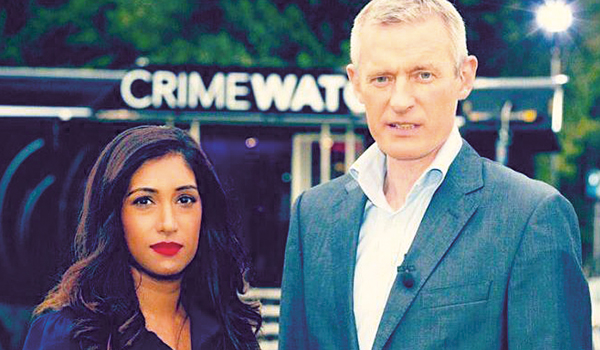Inside Crimewatch
Police Professional visited the set of the hugely successful crime appeal programme to provide a better understanding of the way the show operates, and how officers can get the most for their cases, now it is on location around the country.
Spend any time on the set of Crimewatch and one thing soon becomes abundantly clear for the people who work on the show, this is far more than just a job. The researchers, production assistants and directors in particular spend huge amounts of time with the families of victims of horrendous crimes, sometimes just days after the events, as well as with the police officers investigating them. Ultimately, they become every bit as passionate about getting results as everyone else involved in the case. It is this passion among its staff that enables the show to succeed at its two core aims which, at times, can seem diametrically opposed: producing a television programme that is entertaining and engaging enough to justify its primetime slot while also helping the police to solve some of their most challenging cases. It is a delicate balance, which Joe Mather, editor of Crimewatch since 2010, works hard to get right: Its a circular process. If we dont ensure that people want to watch the programme, then the chances of any individual case that is featured being solved are diminished because we need as many eyeballs on those appeal points as we can get. On the other hand, one of the great things about being with a public service broadcaster is that we can stick our neck out and feature the less populist appeals. Were proud of the fact that well feature cases that no one has heard of, that the newspapers arent covering. We have featured lots of cases involving teenage boys in London who have been murdered but barely mentioned anywhere else. They are all victims and people with families who are left behind and they deserve the same treatment as everyone else. Mr Mathers criteria for selecting cases to feature on the programme is a simple one: The biggest consideration is whether we can make any kind of difference. What are the appeal points? What are we asking our viewers to look at? Those questions are absolutely crucial. That said, we can sometimes feature cases with fewer appeal points because its about putting it back into the public conscious and making sure people are aware this investigation is still ongoing. And sometimes there will be a general buzz that will be stirred up around a case as a result of it featuring on Crimewatch, and that can be very useful for police officers, even if they dont have very clearly defined appeal points. Our message to officers weighing up whether to approach Crimewatch is always to speak to us. Its all completely confidential weve never had anything leaked in 33 years and even if it doesnt go anywhere, we can offer advice. There are so many options other than the full-blown reconstruction, but that is something that is best worked out by having a conversation and taking it from there. The first point of contact for most police officers dealing with the programme is Juliet Piper who is in charge of forward planning. In tandem with Mr Mather, Ms Piper is particularly keen to get across that there is no such thing as a typical Crimewatch crime and that officers should always get in touch, even if they are uncertain whether their particular investigation is suitable for the programme. Ms Piper is also clear that Crimewatch should not only be seen as the last resort for stalled investigations the programme makers can be approached at any time. Maybe youre not interested in a full reconstruction but you need to find one little piece of information, she explained. We can do that for you we can put out an appeal on one small part of a case quite early on in an investigation. Maybe we can run some CCTV, maybe you know one of the people you are looking for so we can put them out as a wanted face. With only two cases per episode given full reconstructions, the vast majority of appeals fit into these other slots. Its always worth a phone call or an email, said Ms Piper. A case may not be suitable for the evening show but may be suitable for the daytime programme [that runs for four weeks during the summer under the name Cri


